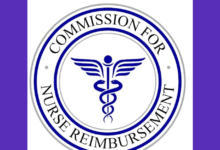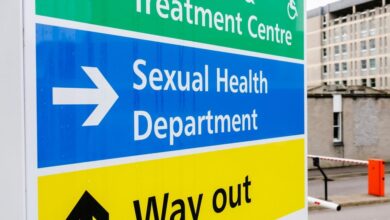‘Baby blind spot’ in policy, health visitors say

The UK Government must bring the issue of preventative care for children under five into the policy spotlight, a report by health visitors has urged.
The Institute of Health Visiting (iHV) called on the current government, or its successor, to invest in the specialty, end health visitor “role drift” and to close a “baby blind spot” in Westminster.
“We already know services are looking to cut more health visitors. That can’t be right”
Alison Morton
Recommendations on how to fix what the iHV called a “health visitor workforce crisis” were published this week, in its 10th annual State of Health Visiting survey report.
Among these recommendations was a call for a “cross-government commitment” to prioritise the first 1,001 days of a child’s life.
To achieve this, iHV reiterated a joint demand with the Children and Young People’s Health Policy Influencing Group (HPIG) for a dedicated ministerial post in government for the interests and health of babies.
Currently, the early years portfolio is covered – alongside 10 other responsibilities – by the parliamentary under secretary of state for children, families and wellbeing. Wantage MP David Johnston has held this post since August 2023.
Alison Morton, iHV chief executive, explained: “There is a baby blind spot in national policy.
“We have a bit of a standing joke that children are born at the age of five […], there is currently no voice for babies in the cabinet.”
Ms Morton added: “Our joint ask is a minister with a portfolio of responsibilities for babies at the heart of government.”
The report included results of a survey of more than 1,000 health visitors across the UK.
Of the respondents, fewer than half (45%) said they were “confident” or “very confident” they were able to meet the needs of vulnerable babies and children.
Meanwhile, 79% said health visiting as a service lacked capacity to meet the needs of all children, and 80% said other services lacked capacity to pick up onward referrals.
A further 45% said that key performance indicators (KPIs) had to be prioritised at the expense of prevention work, with health visitors frequently having to focus on safeguarding and other social care issues.
In response to these findings, iHV asked for a “greater focus on prevention” and early intervention to avoid further “role drift” away from preventative public health.
Ms Morton said data should be collected on metrics such as what parents think about the health visitor service, what has been done to reduce any health inequalities by the health visitors, and how many children they identified as vulnerable.
“[We need] to return to building services that place the needs of babies, children and families at the centre – rather than the soul-destroying pursuit of tick box measures,” she said.
She added: “It’s important children are safeguarded, but it’s also true that prevention and early intervention make a really big difference and will save money in the long term.
“If the role drift continues towards safeguarding and child protection, we’ll have lost this very important service which UNICEF said is a safety net around all families.
“We need to protect that at all costs. Not one else does this.”
As with other nursing specialties, health visiting is at a drastic workforce deficit, the report highlighted.
According to iHV, there is an estimated shortage of 5,000 health visitors in England, with a roughly 40% reduction in numbers since 2015.
The organisation demanded that any governing political party adhere to the NHS Long Term Workforce Plan as a vehicle to close the deficit.
This report’s recommendation came shortly after iHV aired approval of a commitment from the Labour Party to do just this.
Ms Morton said: “We have said we’ll work with the government, and the next government. Both Labour and the [Conservative Party in] government said they’re committed to reviewing the plan every two years and we’re pleased about that.
“We don’t just need more health visitors in training, but [more] substantive posts too.
“In 2024 so far, the year has only just started and we already know services are looking to cut more health visitors. That can’t be right, and the national policy has to put breaks on this.”
The iHV’s report highlighted the links between issues like housing quality and poverty, and the necessity of a bolstered health visiting workforce.
According to the report, a large number of health visitors saw an increase in children with speech, language and communication delay (82%), behavioural problems (75%) and other developmental problems (49%).
Meanwhile, similarly large numbers reported an increase in poverty affecting families (93%), families using food banks (89%) and families skipping meals due to the cost-of-living crisis (50%).
Ms Morton said these issues were becoming more of a health risk due, in part, to there not being enough health visitors.
“The demand is outstripping what they can do, they have had significant service cuts. You can’t take that many health visitors out of the system and it not make a difference,” she warned.
“There is a whole raft of children not getting the support they need.”
In response to the report, a Department of Health and Social Care spokesperson said: “Children are five times more likely to experience poverty when living in a home where no-one works, which is why this government has reduced the number of workless households by 700,000 since 2010.
“We continue to help families with the cost of living with support worth on average £3,700 per household, including raising benefits by 6.5% from April and increasing the Local Housing Allowance.
“We are also taking significant action to improve children’s health by increasing investment in family hubs and the Start for Life and Healthy Child Programmes.
“We plan to increase health visitor training places and have provided local authorities £3bn to fund health services to make sure children get the best start they need.”







